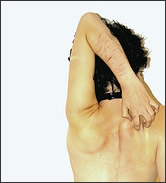Published: March 10, 2011

Illustration: SINC
lthough thousands of people commit suicide worldwide each year, researchers and doctors do not have any method for evaluating a person’s likelihood of thinking about or trying to commit suicide. An international group of scientists, in which the Hospital del Mar Research Institute (IMIM) has participated, has devised the first risk index in order to prevent suicides.
“It is of key importance to identify suicidal thoughts among people at increased risk. The most important contribution that our study has made is an international risk index to estimate the likelihood of a person moving on from these thoughts to any one of the following behaviours – planning or trying to commit suicide”, Jordi Alonso, head of the IMIM Healthcare Services Research Group, tells SINC.
The data used in the study, which also involved Josep M. Haro, a researcher at the Sant Joan de Déu Healthcare Park, and which has been published in the Journal of Clinical Psychiatry, come from the World Health Organisation (WHO) survey World Mental Health Surveys between 2001 and 2007, in which 108,705 adults from 21 countries responded to the Composite International Diagnostic Interview.
The study looks at suicidal behaviour rather than suicides that result in death, since it is based on interviews carried out with adults. The factors associated with such behaviour are – being female, younger age groups, lower levels of education, not living with a partner, being unemployed, suffering from certain mental illnesses, having experienced troubles during childhood, and mental illnesses [continue reading…]

© Creative Commons
Lent in the Christian tradition is a time of sacrifice and penance. It also is a period of purification and enlightenment. Pain purifies. It atones for sin and cleanses the soul. Or at least that’s the idea. Theological questions aside, can self-inflicted pain really alleviate the guilt associated with immoral acts? A new study published in Psychological Science, a journal of the Association for Psychological Science, explores the psychological consequences of experiencing bodily pain.
Psychological scientist Brock Bastian of the University of Queensland, Australia and his colleagues recruited a group of young men and women under the guise they were part of a study of mental and physical acuity. Under this pretense, they asked them to write short essays about a time in their lives when they had ostracized someone; this memory of being unkind was intended to prime their personal sense of immorality—and make them feel guilty. A control group merely wrote about a routine event in their lives. [continue reading…]
 Ah technology, don’t you just love it, the question is can you keep up with all the new trends? So here is a bit of an experiment. Have you heard about QR codes? What the beep is a QR code ( well you may be saying that). A QR Code is a barcode that can contain text, a URL or other data.These images are becoming popular for sharing data with mobile users.
Ah technology, don’t you just love it, the question is can you keep up with all the new trends? So here is a bit of an experiment. Have you heard about QR codes? What the beep is a QR code ( well you may be saying that). A QR Code is a barcode that can contain text, a URL or other data.These images are becoming popular for sharing data with mobile users.
Yesterday I posted the latest Psychobabble newsletter to the email list. ( you can subscibe here). Or for all you tech savvy ShrinkRap readers 123 phones ready ‘cos here is the QR code to Counting Sheep…. Losing Sleep
An unexpected discovery points to the liver, not the brain, as the source of plaque associated with Alzheimer’s disease.
Greg Sutcliffe, is a professor and lead researcher of the study done at Scripps Research Institute in La Jolla. Sutcliffe said a protein substance “born in the liver” travels through the blood stream and deposits plaque commonly associated with Alzheimer’s in the brain. “The disease Alzheimer’s pathogenic origins are in the liver rather than in the brain,” said Sutcliffe.
Because medicine travels into the liver easier than it does the brain, Sutcliffe said, this discovery could mean that treating the devastating disease may be as easy as taking a few pills .“It’s a big step toward directing attention toward what needs to be accomplished.” Sutcliffe said the next steps are to work with a drug company to do human clinical trials that target the production of the Alzheimer’s plaque that originating in the liver. The research, done on mice, also found three genes that seemed to protect against Alzheimer’s-linked plaque.
The Study was published in The Journal of Neuroscience.



